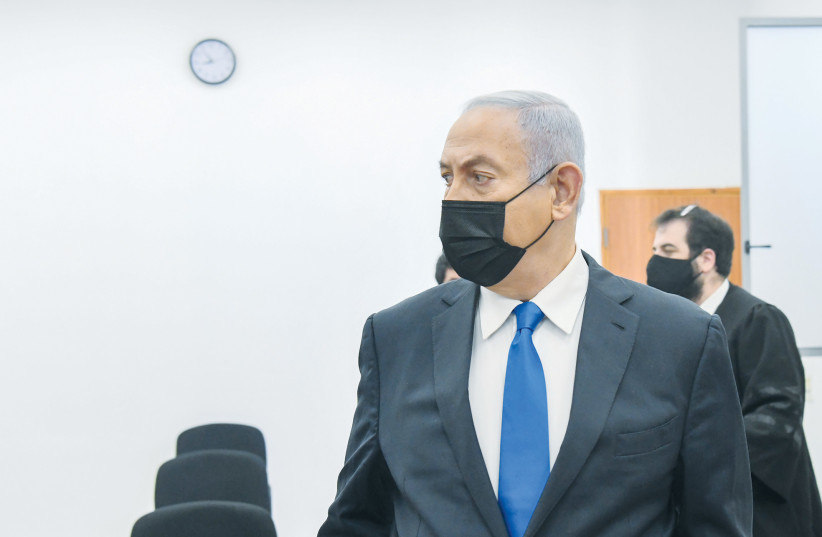The Knesset Foreign Affairs and Defense Committee approved making the state inquiry hearings on the Case 3000 Submarine Affair more public than what was originally determined.
With a 5-0 vote on Tuesday after both the inquiry panel itself and many Knesset MKs bridled at allowing the Defense Ministry greater power over what would be made public, the new rules give discretion to inquiry chair and former chief justice Asher Grunis.
According to the FADC decision – part of which was a compromise reached between committee chairman Ram Ben Barak and the Defense Ministry – operational issues will remain classified, but other issues that might have normally remained secret will be at Grunis’s discretion.
Case 3000 currently refers to both criminal proceedings in Tel Aviv District Court against several former top aides to former prime minister Benjamin Netanyahu and some former top IDF officials, as well as the broader inquiry that is expected to heavily criticize Netanyahu’s decision-making process.
The criminal case involves alleged bribery, in which Israeli officials skimmed off the top of deals for nuclear-powered submarines from Germany, while the state inquiry is focused on why Netanyahu excluded the IDF, Defense Ministry and other top officials from involvement in some of his decisions regarding the submarines and other navy acquisitions.

In reaching its decision, the FADC had the loud backing of several former top defense officials who appeared at the hearing.
“There was corruption many more times than what we could imagine,” former IDF chief Lt.-Gen. (res.) Dan Halutz told the FADC. “In my opinion, the acquisitions were carried out without proper authority by exploiting the secrecy of the security issue.”
Halutz also said that keeping the hearings as public as possible was the best way to deter corruption in the future and information leaking to the media that should remain classified.
“It was clear to me in real-time that this saga would eventually lead to the arena of a criminal probe,” said former Defense Ministry director-general Maj.-Gen. (res.) Dan Harel.
Echoing Halutz about keeping the hearings mostly public, Harel said that “if the state inquiry is kept closed-door, this would frustrate the purpose for which the inquiry was established.”
Likewise, former IDF intelligence chief Maj.-Gen. (res.) Amos Malka warned that those involved had tried to erase evidence, and that the cure for their conduct was keeping most of the hearings public.
In contrast, Defense Ministry legal adviser Itai Ofir said that “there are more secret security issues in this matter than there were even in the Agranat Commission,” which investigated the lack of IDF preparedness in the Yom Kippur War.
Ofir said that too many of the issues implicated directly or indirectly by the inquiry would damage Israeli interests if they were revealed to the public.
Most of the committee MKs supported keeping the majority of hearings public, though there were some heated exchanges between Meretz MK Michal Rozin and UTJ MK Meir Porush over whether “the nation” wanted this inquiry, and whether the coalition or the opposition better represented the will of the nation.
Porush said that he would usually support whatever line the Defense Ministry took on what should remain classified but ultimately did not vote against the committee’s compromise.
He also said that even Prime Minister Naftali Bennett had abstained from voting for creating the committee.
No one from the Likud appeared before the FADC.
The criminal case is moving forward at a snail’s pace. The police had recommended indictments in 2018, and the state prosecution issued a wave of indictments in May, yet the court is not even slated to decide procedures for dealing with classified information before June, let alone to start the process of calling witnesses.
